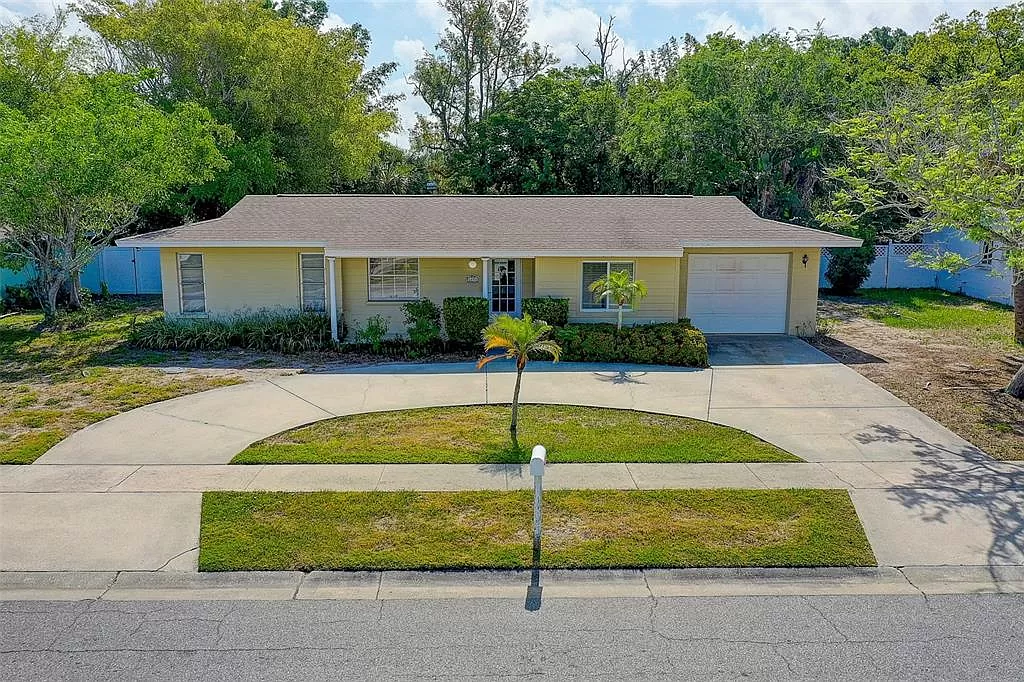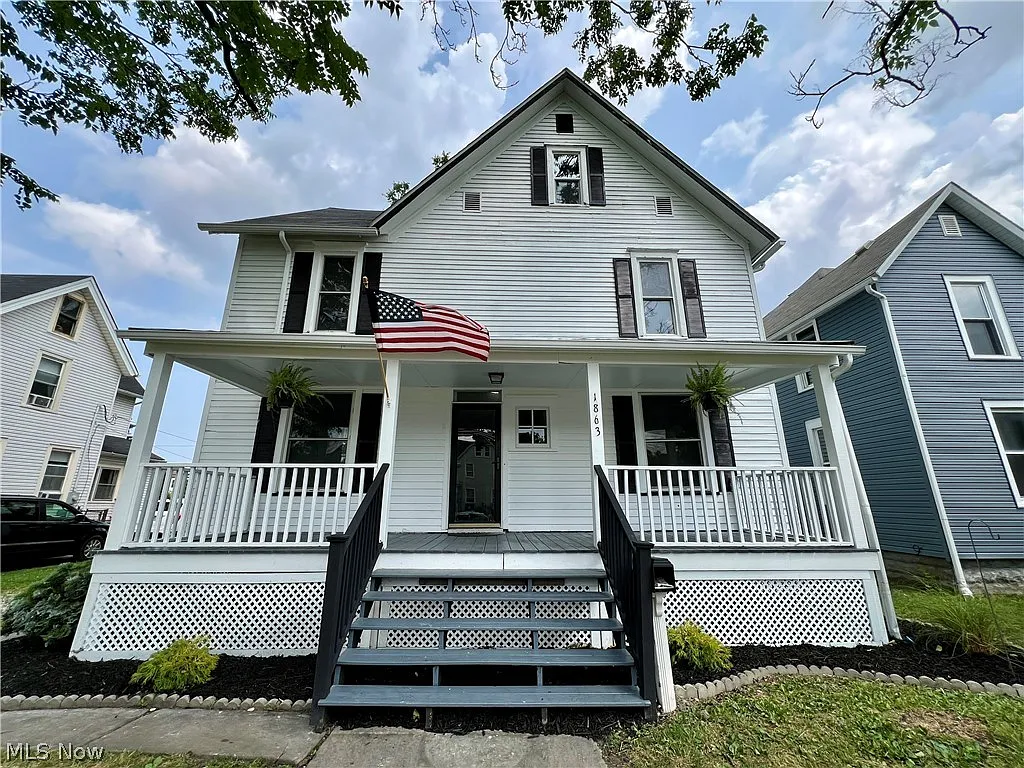Key Takeaways:
➡️ Foreign nationals can buy property in the US regardless of their citizenship, immigration, or residency status.
➡️ Expats on different visa programs can buy a home in the US even if they do not hold a green card.
➡️ Foreign investors can purchase real estate in the US from their home countries without a tourist or any other visa and can even close on the property remotely in an US embassy.
➡️ Buying US real estate does not grant immigration status. It does not even give you the right to live or work in the USA.
Foreign nationals spent $42 billion on residential properties in the USA from April 2023 to March 2024, accounting for 54,300 existing home purchases. (Source: National Association of Realtors).
This shows that buying property in the US is not only feasible but also a popular choice for many foreigners.
It’s normal to have doubts, and I understand that purchasing a home in another country can be daunting. I’ve compiled this comprehensive guide to make this process easier for you.
It’s designed to simplify every step, making buying property in the US more manageable than buying in your own country.
Let’s embark on this journey together and make your dream a reality.
Table of Contents
Can a Foreigner Buy Property in the USA?
Yes, a foreigner can buy a house in the US without any restrictions. There are no citizenship requirements for real estate ownership; a non-citizen can buy a home in the US and have the same homeownership rights as US citizens.
Expats on H1B, L1 or any other visa don’t need to wait for their green cards, and foreign investors don’t need to establish US residency to buy US real estate.
Here is an overview of foreign residential real estate transaction in the US.

The above numbers prove the feasibility and popularity of buying US real estate for foreigners.
However, despite the simple process, we know how overwhelming buying a home in another country can feel due to unfamiliarity with the local market, mortgage options, and the buying process.
HomeAbroad is a dedicated platform for foreign nationals buying US real estate.
We offer expertise and support through our specialized real estate agents, as well as US foreign national mortgage programs for foreign nationals without a US credit history.
We’re here to help you purchase your perfect home with confidence.
Not sure you can invest in the US as a foreign investor? Let’s find out.
Can Non-Citizens Purchase Investment Property in the US?
Yes, non-citizens can buy investment property in the USA without any restrictions or visa requirements.
According to a NAR report, in 2024, non-US citizens with permanent residences outside the US purchased more real estate than those living in the US on various visas.
These foreign nationals invested $19.4 billion in real estate, making up 46.19% of the total residential real estate purchases by foreign buyers.
This highlights the strong investment appeal of the US real estate market due to:
- High rental yields averaging 8%
- Annual property appreciation of 4.8%
- No restrictions or additional taxes
- More affordable property prices compared to global metro cities
- No stamp duty
Excited to purchase real estate in the US? Wondering what it takes? Here you go.
Required Documents for Foreigners to Buy Property in the US
The exact document requirements for buying US real estate may vary based on your residency status. In general, you will need following documents to get started with your home search:
- Valid passport / Government-issued ID
- Proof of funds, if buying in cash
- Pre-approval letter from a Mortgage broker, if financing your property
However, if you are financing your US real estate, you must provide income and other relevant documents according to your loan program when the underwriter reviews your loan file for approval.
Refer to our foreign national mortgage guide to know the available financing options and their requirements.
How can Foreigners Buy Property in the USA?
Since we’ve established that non-citizens can buy real estate in the US and learned about the required documents, let’s move on to the next step and see how you can proceed to buy real estate in the US as an expat or foreign investor. Step-by-step guide to purchasing a home in the US as a foreign national:
Step 1 – Decide the Location
When buying a primary residence or an investment property in the USA, decide where you want to live or invest. If you are in the US on a work or student visa, look for a place near your work or school.
In case you are a foreign investor, research the growth potential, rental market, and appreciation trends in different markets.
Use HomeAbroad’s AI-driven platform, ziffy.ai, to research neighborhoods by cap rate, cash-on-cash return, and growth outlook. This helps you shortlist the best ZIP codes that align with your investment goals.
Step 2 – Get a Pre-Approval Letter from HomeAbroad
Planning your financing early can help you budget better and avoid delays when buying property.
If you’re concerned about lacking a US credit history, HomeAbroad offers tailored foreign national mortgage programs for newcomers and foreign investors without a US credit history.

Pre-qualify for a US mortgage as an international buyer.
No US credit history needed.
A pre-approval letter for mortgage financing from HomeAbroad is free of cost and shows sellers that you’re a serious buyer who can afford the house up to the purchase price mentioned in your Pre-approval letter.
For expats with established credit histories, you can have peace of mind knowing that you are working with a mortgage company that understands visa holders and expats.
To get pre-approved, you’ll need:
- Bank statement (or brokerage statement) showing at least 25% of the purchase price plus 3–4% estimated closing costs.
- Passport (photo page)
- Optional but helpful: proof of income (pay slips, tax returns) and a brief “source-of-funds” letter
We are most reliable when it comes to helping foreigners buy their dream property in the USA and Yu Li is here to vouch for us. See what she has to say:
As someone new to the US, navigating the housing market was overwhelming. HomeAbroad connected me with a fantastic agent who understood my needs. They even helped me secure financing despite not having a US credit history! Their concierge service took care of everything else, letting me focus on finding the perfect place. HomeAbroad made buying a home in America a dream – highly recommend!
Yu Li - Purchased a primary home in Miami, Florida
Get started today with HomeAbroad to begin your US real estate buying journey.
Step 3 – Work with a Local Investor-Friendly Real Estate Agent
Finding the right property and buying it as a foreign national could be challenging, but having a professional on your side can make things much easier.
HomeAbroad connects you with licensed agents with the CIPS (Certified International Property Specialist) designation. Our agents have extensive experience working with foreign nationals and understand rental comps, STR regulations, and the paperwork involved in cross-border real estate transactions.
Your agent will help you shortlist suitable properties, schedule virtual or in-person tours, and prepare offers aligned with your goals.
Here are things that a HomeAbroad agent can do for you.
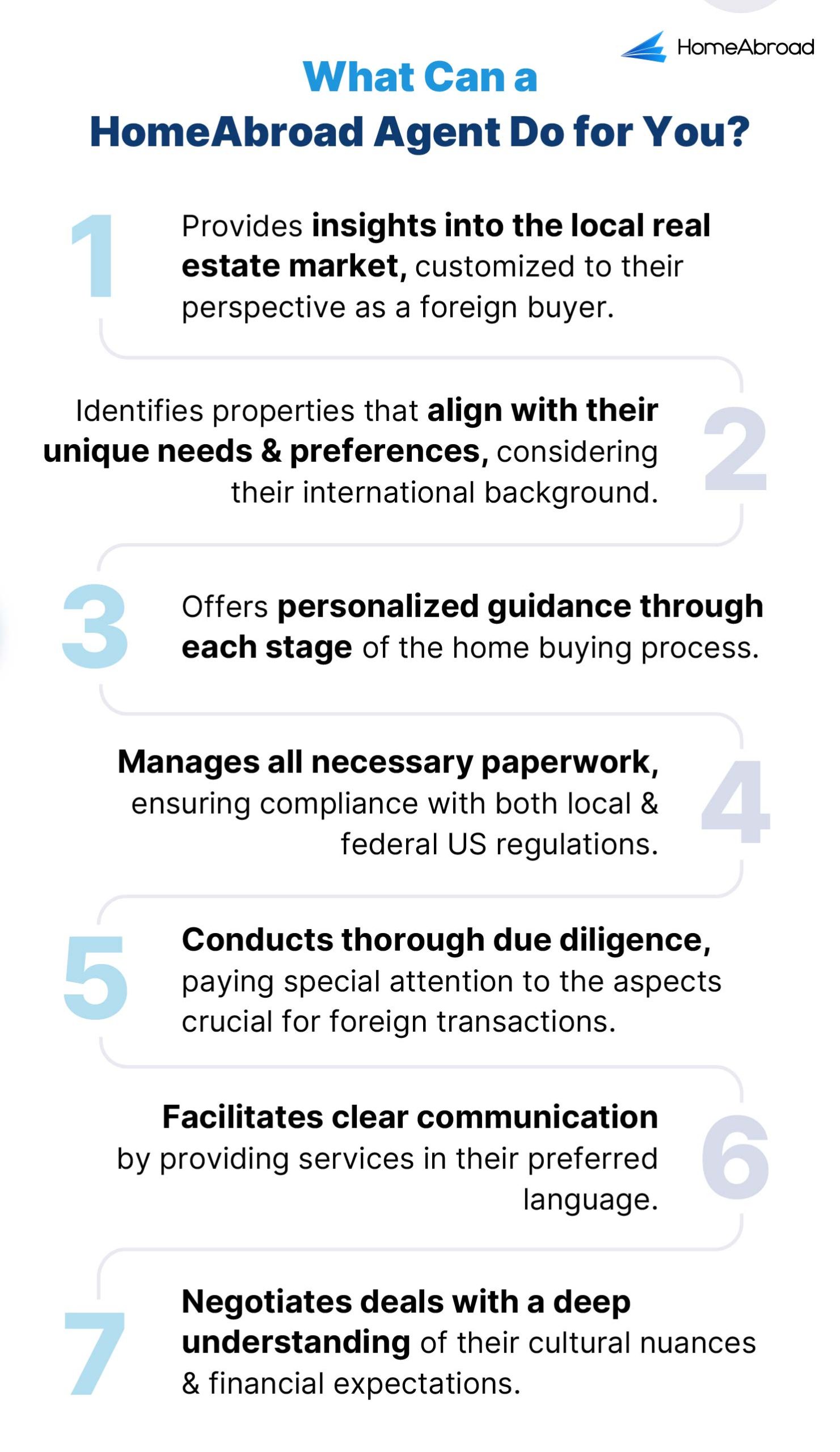
Step 4 – Sign the Purchase Contract & Start the Loan Process
Once your offer is accepted, the next step is to sign the purchase agreement and transfer the earnest money deposit, typically around 1% to 3% of the purchase price.
After that, begin your mortgage application with HomeAbroad by uploading the signed purchase contract and an updated bank statement to our secure loan portal.
This officially opens your loan file and sets the financing process in motion.
Step 5 – Order Required Property Reports
After the loan file is opened, it’s time to order the necessary third-party reports that help confirm the property’s value, condition, and legal standing.
Here are the key reports required:
- Appraisal (required): Determines the property’s market value and fair-market rent. The fee is paid upfront.
- Inspection (strongly recommended): A detailed assessment of the home’s physical condition to identify any existing or potential issues.
- Title Search and Insurance: Ensures the property is legally transferable and free from any liens, claims, or ownership disputes.
HomeAbroad will coordinate and guide you through each of these steps to make the process seamless and secure.
Step 6 – Loan Underwriting & Document Collection
Once your loan application is submitted, the underwriting process begins. A dedicated underwriter will review your file based on foreign national lending guidelines.
During this stage, you may be asked to provide additional documentation, including:
- Updated bank statement (if older than 30 days)
- Proof of liquid reserves (typically 6–12 months of PITI)
- Entity documents if purchasing through an LLC
- Any missing KYC information
Once all required documents are submitted, underwriting is generally completed within 5–7 business days.
Step 7 – Clear to Close & Final Loan Disclosure
Once all underwriting conditions are met and your documentation is verified, you’ll receive a Clear to Close (CTC), which means your loan is officially approved and ready for closing.
You’ll also receive a Final Closing Disclosure (CD), which outlines the total funds you’ll need to transfer for the transaction, including the down payment and closing costs.
Review the disclosure carefully and acknowledge it electronically to move forward with the closing process.
Step 8 – Closing
Once all checks come back clean and you have the mortgage approval, it’s time to take ownership of your property.
On closing day, your HomeAbroad agent will guide you through the final steps. This includes coordinating with the title company, escrow officer, and mortgage officer to ensure all necessary documents are prepared and signed.
Here is a checklist for you to be well-prepared for the day.
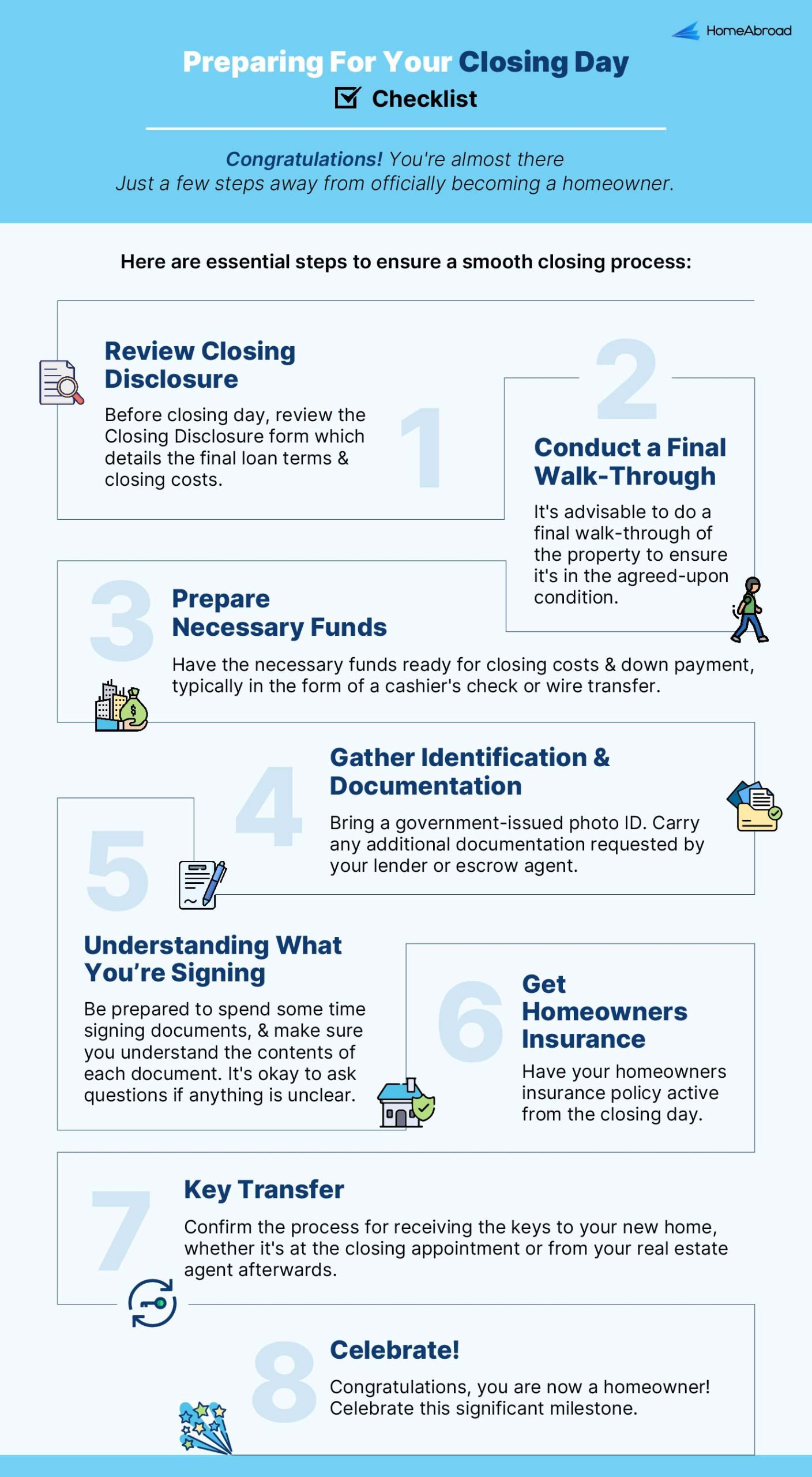
You can choose one of the following signing options depending on your location and preference:
- Signing in person at a US title office
- Signing at an embassy or consulate in your home country (notarized with an apostille)
- Using a Remote Online Notary (RON), which is available in many states and supported by most HomeAbroad programs
Don’t worry, you are not alone! Your agent will help you complete all the paperwork and take ownership of the property.
Congratulations, you now own a US property!
If all documents are submitted promptly, the typical timeline from contract to closing is around 30 to 45 days. Talk to a HomeAbroad Loan Officer to learn more about these options and the exact steps involved.
Tax Obligations for Foreigners Buying US Real Estate
Once you have learned about the various steps involved in purchasing a property in the US as a non-US resident, you must grasp the tax implications.
Tax implications for foreign real estate buyers are the same as those for US citizens, with the same tax rates. There are no additional implications; foreigners are even eligible for the same deductions as US citizens.
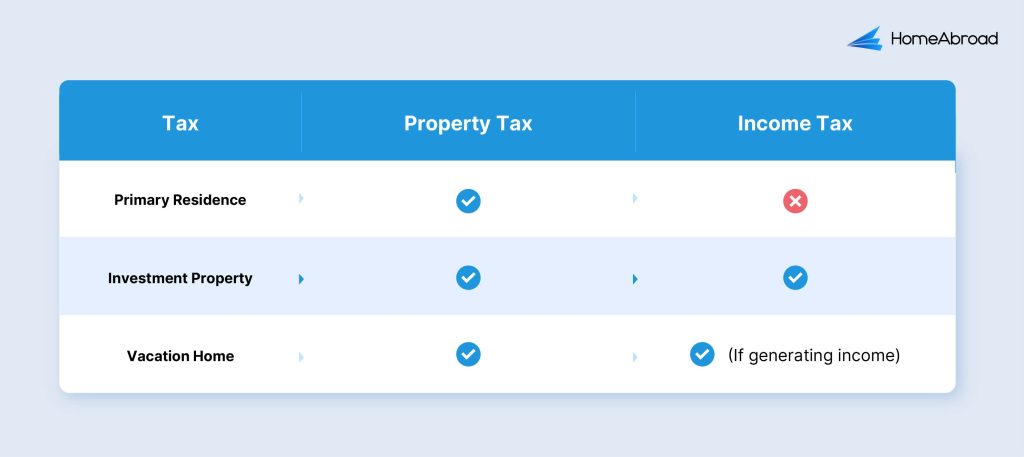
If you are a foreign investor concerned about paying double taxes on your US real estate income in both the US and your home country, rest assured that the USA has tax treaties with many countries to prevent double taxation.
Additionally, foreign buyers are eligible for all the deductions available to US citizens, which can help reduce your tax liabilities.
FIRPTA (Foreign Investment in Real Property Tax Act)
Under FIRTPA (Foreign Investment in Real Property Tax Act), when a non-resident foreigner sells US real estate, a portion of the sale proceeds (usually 10%-15%) must be withheld by the buyer at closing and remitted to the IRS.
This isn’t an additional tax but a prepayment towards any potential capital gains tax liability.
Foreign buyers will be entitled to a refund based on the actual capital gain tax rate (same as US citizens) when they file their tax returns.
You can avoid capital gains tax implications with a 1031 exchange.
Avoid Capital Gains Tax with 1031 Exchange
A 1031 exchange lets foreign real estate investors in the US avoid paying capital gains tax on profits from selling a property if they use that money to buy another similar property. This helps them keep more money to invest and grow their property holdings in the US.
You are all set to start your US real estate journey now!
Start Your Home Buying Journey in the USA Today
Are you hesitant about buying a home in the USA due to uncertainties about visa renewals and investing in another country?
It’s natural to have doubts, but foreign nationals can own property from their home country and enjoy a steadily appreciating asset in the world’s most robust economy.
Many people like you are taking advantage of this opportunity, and you shouldn’t miss out.
HomeAbroad is dedicated to democratizing US real estate for everyone.
We offer tailored foreign national mortgage programs, real estate agents with international expertise, concierge services, and a technology-enabled platform to streamline the entire process for you.
Start your US real estate journey with HomeAbroad.
Frequently Asked Questions (FAQs)
Can you buy a house in the US with foreign income?
Yes, you can! There are no restrictions on the source of your funds for purchasing property in the USA. Whether your income comes from within the US or abroad, you can use it to buy a house.
Can you purchase a house in the USA without a green card?
Yes, you don’t need a green card or specific visa to buy property in the US. Your foreign citizenship and immigration status do not prevent you from owning real estate.
Can I get a green card or residency if I buy property in the USA?
Unfortunately, buying property in the USA alone won’t directly qualify you for a green card or residency. There are specific investment visa programs (EB-5), but more than buying a house is typically needed.
Can foreigners buy land in the USA?
Yes, foreigners can buy US land like a house. There are no legal barriers to this.
At HomeAbroad, we ensure the reliability of our content by relying on primary sources such as government data, industry reports, firsthand accounts from our network of experts, and interviews with specialists. We also incorporate original research from respected publishers when relevant. Discover more about our commitment to delivering precise and impartial information in our editorial policy.
National Association of Realtors: 2024 International Transactions in U.S. Residential Real Estate
IRS: FIRPTA Withholding




![Can Foreigners Buy Property in the USA? [2025]](https://homeabroadinc.com/wp-content/uploads/2021/07/CanForeignersBuyinUS-500x325.jpg)




![How to Buy a House on an H1B Visa [2025]](https://homeabroadinc.com/wp-content/uploads/2021/08/BuyingonH1BVisa-scaled.jpg)




